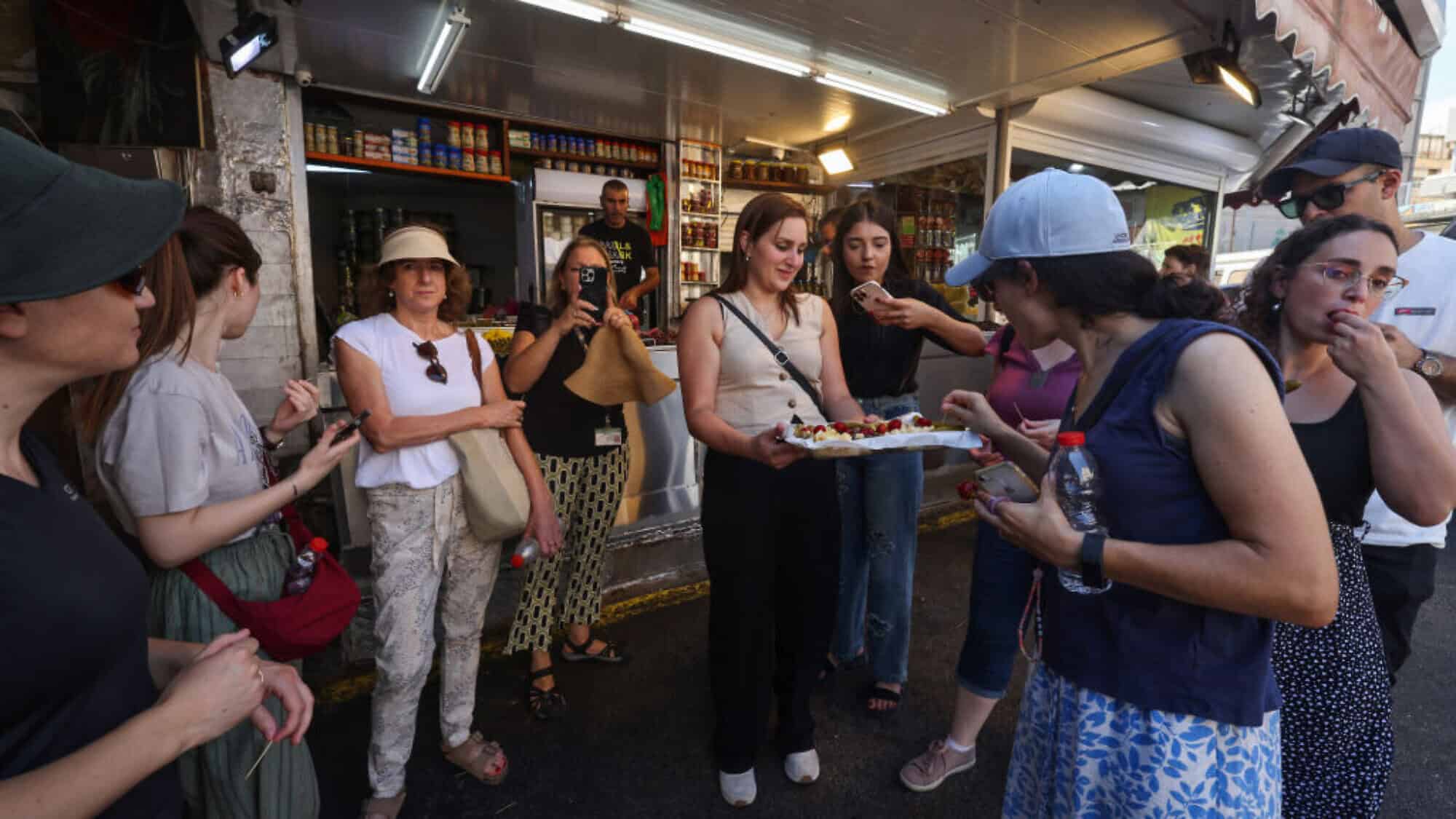There were near-hourly threats from Iranian officials of an impending attack.
The omnipresent former Israeli generals and defense analysts were working overtime in the television news studios, where even in a news-saturated country the dizzying sequence of events of the last week was an anomaly.
Then came the word from the U.S.’s top diplomat on Sunday evening that an Iranian attack on Israel was imminent, expected within the next 24 to 48 hours.
Israel has been on pins and needles for the fifth straight day on Monday amid the deep uncertainty and the wait, perhaps intentionally planned to wear it down by the powerful existential foe the Islamic Republic. This is not just one or more of Iran’s proxies, such as Hamas and Hezbollah, which Israel is more accustomed to battling.
Even after the killing of Hezbollah’s top “military” commander in Lebanon in the wake of the massacre of 12 Druze children on their Golan Heights soccer field by a rocket fired by the Lebanese terror group, followed by the assassination of the Hamas leader in Iran last week, there was neither celebration nor joy in Israel, despite the national feeling of justice done.
A sense of realism has sunk in after nearly 10 months of war against Hamas in Gaza following the Oct. 7 massacre. The murder of an elderly man and woman as they walked in the park by their home in the Tel Aviv suburb of Holon on Sunday morning—and the fifth birthday on Monday of the second youngest of the 115 hostages still being held in captivity in the Strip—underscores the continuing threat far from the country’s borders and the unresolved situation nagging at Israel’s soul.
While there is palpable anxiety over an Iranian attack, widespread panic is not apparent.
There is no crowd of shoppers at supermarkets, crowding for bottled water and toilet paper as in crises past; there has been no mad rush for the airport to get out of the country even at the height of summer vacation time when Israelis were already long anxious to take a breather from nearly a year of war.
In fact, tens of thousands of Israelis whose flights were canceled by foreign airlines hurried to get back home over the last several days, often paying exorbitant prices or having to travel to an alternate country, such as Cyprus or Greece, to find a flight for the last leg of the journey.
De rigueur discussions
For old-timers, the period reminds them of the weeks leading up to the Six-Day War in June 1967, reigniting de rigueur discussions in the streets as in TV news studios—mirroring discussion among Israel’s leaders—on why Israel wasn’t planning to carry out a pre-emptive strike.
“I don’t think there was such an existential threat since the closure of the Straits of Tiran,” said Rena Nass, referring to the Egyptian move two weeks before the 1967 Six Day War.
Israel’s parliament held a rare summer meeting on Monday during its months-long summer recess, and the banal local news reports of clashes between ultra-Orthodox extremists and police outside an IDF induction center, which highlighted still simmering internal tensions belying the national mood and the external dangers.
Some Tel Aviv hotels, normally teeming with tourists over the summer vacation, have been advising guests to take a lower-floor room.
Still, most Israelis—wearied by the longest conflict since the 1948-49 War of Independence—are going about their chores even as they pondered what would happen next and when, and tried to plan ahead.
Through the worry, there is a sense of determination not to let the enemy win, among both young and old, newcomers and veterans, Jews and non-Jews living together in Israel. Israeli flags flutter on cars and bikes.
A crowd of shoppers at Jerusalem’s popular Mahane Yehuda open-air market on Friday started singing Am Yisrael Chai or the Nation of Israel lives in a clip that went viral on social media around the world.
There is also some Israeli humor amid the somber national mood.
“Calories, shmalories. If there’s gonna be Armageddon, I may as well go all out on the chocolate ruggelach,” the popular Israeli social-media influencer Arsen Ostrovsky posted on X on Friday, with a photo of the famed Jewish pastry.
Amid the angst, there is also a palpable sense of togetherness and faith that has kept the country together in perilous times past since the modern state was created in 1948.
“We trust the Creator of the Universe,” says Anat Hadad of Jerusalem. “While it is undoubtedly a trying time, this, too, shall pass.”

























